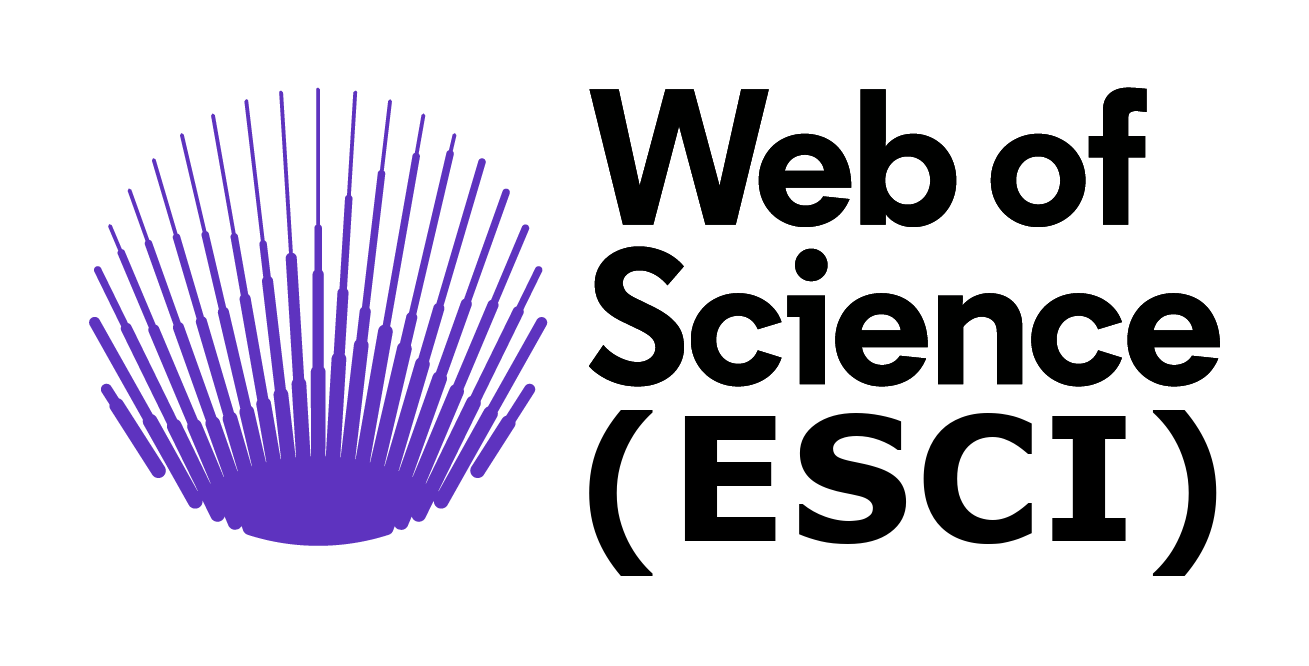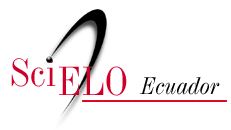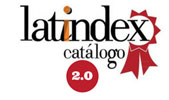Eficiencia en la remoción de materia orgánica mediante lombrifiltros (Eisenia foetida) en aguas residuales domésticas para zonas rurales
DOI:
https://doi.org/10.29019/enfoqueute.746Palabras clave:
Lombrifiltro; Eisenia foetida; aguas residuales domésticas; caudal; eficiencia.Resumen
El inadecuado manejo de las aguas residuales domésticas en zonas rurales vertidas en cuerpos hídricos sin previo tratamiento constituye un gran problema de polución ambiental, así como un riesgo para la salud pública. El propósito del este estudio fue evaluar la eficiencia de la remoción de materia orgánica mediante lombrifiltros en las aguas residuales domésticas de una zona rural. En condiciones experimentales, se diseñó el lombrifiltro utilizando como base teórica el sistema de tratamiento Tohá —creado por el Dr. José Tohá— conformado por cuatro estratos: aserrín + Eisenia foetida, carbón activado, grava y piedras de río. Se evaluó la concentración de materia orgánica del afluente obteniendo elevadas concentraciones de DBO5, DQO, SST y ST. T1 alcanzó los mayores porcentajes de eficiencia con un flujo volumétrico de 1.8×10-2 l/s y TRH de 0.92 h obteniendo 52.25 % para DBO5 y DQO, 66.74 % de SST y 52.91 % de ST. De esta manera, se determinó que la utilización de lombrifiltros a base de Eisenia foetida para remover la materia orgánica representa un sistema de tratamiento ecológico e innovador que requiere una baja inversión, es eficiente y amigable con el ambiente.
Descargas
Referencias
Reforma del Texto Unificado de Legislación Secundaria (TULSMA), Acuerdo Ministerial 097-A, R. O. No. 387. Anexo 1. Tabla 9. (2015).
Adugna, A., Andrianisa, H., Konate, Y., & Maiga, A. (2019). Fate of Filter Materials and Microbial Communities During Vermifiltration Process. Journal of Environmental Management, 242, 98–105. https://doi.org/10.1016/j.jenvman.2019.04.076
Agua. Calidad del agua. Muestreo. Manejo y conservación de muestras, NTE INEN 2169:2013. (2013a). http://www.trabajo.gob.ec
Agua. Calidad del agua. Muestreo. Técnicas de muestreo, NTE INEN 2176:2013. (2013b). http://www.trabajo.gob.ec
Alcívar, U., Dueñas, A., Sacon, E., Bravo, L., & Villanueva, G. (2016). Influencia de los tipos de secado para la obtención de harina de lombriz roja californiana (Eisenia foetida) a escala piloto. Tecnología Química, 36(2),.187–196. https://www.redalyc.org/jatsRepo/4455/445546335007/index.html
Asthana, M., Kumar, A., & Sharma, B. S. (2016). Wastewater Treatment: Principles and Applications of Environmental Biotechnology for a Sustainable Future, 173–232. https://doi.org/10.1007/978-981-10-1866-4_6
Baumgartner, R. (2013). Developing a Testing Protocol for Vermifiltration-based Onsite Wastewater Treatment Systems (VOWTS), 1–60. http://researchrepository.murdoch.edu.au/id/eprint/16946
Cáceres, D., Calisaya, G., & Bedoya, E. (2018). Eficiencia de la lombriz roja californiana (Eisenia foetida) en el tratamiento de aguas residuales domésticas. Revista Ciencia y Tecnología para el Desarrollo, 4, 13–23. https://revistas.ujcm.edu.pe/index.php/rctd/article/view/115
Caicedo, J. (2017). Diseño, construcción y evaluación de un prototipo biológico compuesto de Eisenia foetida y agave filifera, para el tratamiento de aguas residuales en la granja del Ministerio de Agricultura, Ganadería, Acuacultura y Pesca, Riobamba 2015 [Tesis de pregrado, Escuela Superior Politécnica de Chimborazo]. Repositorio Institucional ESPOCH. http://dspace.espoch.edu.ec/handle/123456789/6321
Coronel, N. (2015). Diseño e implementación a escala de un biofiltro Tohá en la ESPOCH para la depuración de aguas residuales domésticas procedentes de la comunidad Langos La Nube [Tesis de pregrado, Escuela Superior Politécnica de Chimborazo]. Repositorio Institucional ESPOCH. http://dspace.espoch.edu.ec/handle/123456789/4802
De Anda, J. (2017). Saneamiento descentralizado y reutilización sustentable de las aguas residuales municipales en México. Sociedad y Ambiente, 14(1), 119–143. http://www.scielo.org.mx/pdf/sya/n14/2007-6576-sya-14-119.pdf
De Lima Rodrigues, A., Mesak, C., Silva, M., Silva, G., Leandro, W., & Malafaia, G. (2017). Organic Waste Vermicomposting through The Addition of Rock Dust Inoculated with Domestic Sewage Wastewater. Journal of Environmental Management, 196, 651–658. https://doi.org/10.1016/j.jenvman.2017.03.072
Dharwal, M., Parashar, D., Shuaibu, M. S., Abdullahi, S. G., Abubakar, S., & Bala, B. B. (2020). Water pollution: Effects on Health and Environment of Dala LGA, Nigeria. Materials Today: Proceedings, S/p. Corpus ID: 229397024. https://doi.org/10.1016/j.matpr.2020.10.496
García, Z. (2012). Comparación y evaluación de tres plantas acuáticas para determinar la eficiencia de remoción de nutrientes en el tratamiento de aguas residuales domésticas [Tesis de pregrado, Universidad Nacional de Ingeniería]. Repositorio UNI-Tesis. http://cybertesis. uni. edu. pe/handle/uni/1292.
Ghasemi, S., Mirzaie, M., Hasan-Zadeh, A., Ashrafnejad, M., Hashemian, S. J., & Shahnemati, S. R. (2019). Design, Operation, Performance Evaluation and Mathematical Optimization of a Vermifiltration Pilot Plan for Domestic Wastewater Treatment. Journal of Environmental Chemical Engineering, 8(1), 103–587. https://doi.org/10.1016/j.jece.2019.103587
Guzmán, T. M., Pérez Chamorro, O., & Valdés Pérez, O. (2020). Biodegradación de residuos sólidos urbanos utilizando cultivos microbianos y biofiltro estático de Eisenia foetida. Tecnología Química, 40(1), 81–92.
Huiza, J., & Ordoñez, N. (2018). Eficiencia de lombrifiltro implementando la técnica de pared caliente en el tratamiento de aguas residuales domésticas del centro poblado de Huaylacucho del distrito de Huancavelica. [Tesis de pregrado, Universidad Nacional de Huancavelica]. Repositorio Institucional UNH. http://repositorio.unh.edu.pe/handle/UNH/2429
Chippymol, J., Meenal, S. H., Elakkiya, S., & Logarshani, S. (2020). Sustainable Environment Through Treatment of Domestic Sewage Using MFC. Materials Today: Proceedings, 37(2), 1495-1502. https://doi.org/10.1016/j.matpr.2020.07.110
Jin, Q., Li, W., & Li, X. (2016). Effect of Earthworm Eisenia foetida in Constructed Wetland on Purification of Country Wastewater. Procedia Engineering, 154, 406–411. https://doi.org/10.1016/j.proeng.2016.07.505
Kumar, T., Rajpal, A., Arora, S., Bhargava, R., Prasad, K., & Kazmi, A. (2016). A Comparative Study on Vermifiltration Using Epigeic Earthworm Eisenia fetida and Eudrilus eugeniae. Desalination and Water Treat 57(14), p 6347–6354. https://doi.org/10.1080/19443994.2015.1010230
Lohani, S. P., Khanal, S. N., & Bakke, R. (2020). A Simple Anaerobic and Filtration Combined System for Domestic Wastewater Treatment. Water-Energy Nexus, 3(1), 41–45. https://doi.org/10.1016/j.wen.2020.03.004
Loro, A. (2018). Evaluación de la eficiencia del tratamiento secundario de aguas residuales domésticas utilizando un biofiltro con Eisenia foetida y un biofiltro convencional [Tesis de pregrado, Universidad Científica del Sur]. Repositorio UCSUR-Institucional. https://hdl.handle.net/20.500.12805/567
Manyuchi, M. M., Mupoperi, N., Mbohwa, C., & Muzenda, E. (2019). Treatment of Wastewater Using Vermifiltration Technology. Water Conservation, Recycling and Reuse: Issues and Challenges, 215–230. https://doi.org/10.1007/978-981-13-3179-4_12
Mejía, A., Cabrera, M., & Carrillo, Y. (2017). Remoción de contaminantes orgánicos presentes en agua residual doméstica mediante prototipo a escala de laboratorio. La Granja: Revista de Ciencias de la Vida, 26(2), 72–83. https://doi.org/10.17163/lgr.n26.2017.06
Metcalf & Eddy. (1995). Ingeniería de aguas residuales: Tratamiento, vertido y reutilización (3.a ed). McGraw Hill.
NBS (National Bureau of Statistics). (2017). Report on the State of Agriculture of China. http://www.stats.gov.cn/english/
Paico, D. (2017). Sistema Tohá, para el tratamiento de aguas residuales de la Universidad Cesar Vallejo. [Tesis de pregrado, Universidad Cesar Vallejo]. Repositorio Institucional UCV. https://hdl.handle.net/20.500.12692/10890
Pramanik, P., & Chung, Y. (2011). Changes in Fungal Population of Fly Ash and Vinasse Mixture During Vermicomposting by Eudrilus eugeniae and Eisenia fetida: Documentation of Cellulase Isozymes in Vermicompost. Waste Manag, 1(31),1169–1175. https://doi.org/10.1016/j.wasman.2010.12.017
Priya, A. K., Pachaiappan, R., Kumar, P. S., Jalil, A. A., Vo, D. V. N., & Rajendran, S. (2021). The War Using Microbes: A Sustainable Approach for Wastewater Management. Environmental Pollution, 275, 116598. https://doi.org/10.1016/j.envpol.2021.116598
Ramón, J., León, J., & Castillo, N. (2015). Diseño de un sistema alternativo para el tratamiento de aguas residuales urbanas por medio de la técnica de lombrifiltros utilizando la especie Eisenia foetida. Revista Mutis, 5(1), 46–54. https://revistas.utadeo.edu.co/index.php/mutis/article/view/1018/1053
Reyes, J. (2016). Determinación de la eficiencia del aserrín y la fibra de coco utilizados como empaques para la remoción de contaminantes en biofiltros para el tratamiento de aguas residuales. Enfoque UTE, 7(3), 41–56. https://doi.org/10.29019/enfoqueute.v7n3.104
Saboya, X. (2018). Eficiencia del método de lombrifiltro en la remoción de los contaminantes de las aguas residuales domésticas en el Distrito de Chachapoyas-Amazonas. [Tesis de pregrado, Universidad Peruana Unión]. Repositorio UPU. http://repositorio.upeu.edu.pe/handle/UPEU/1123
Salazar, M. (2005). Sistema Tohá: Una alternativa ecológica para el tratamiento de aguas residuales en sectores rurales [Tesis de pregrado, Universidad Austral de Chile]. Repositorio Institucional UACh. http://cybertesis.uach.cl/tesis/uach/2005/bmfcis161s/doc/bmfcis161s.pdf
Samal, K., Dash, R. R., & Bhunia, P. (2018). A Comparative Study of Macrophytes Influence on Performance of Hybrid Vermifilter for Dairy Wastewater Treatment. Journal of Environmental Chemical Engineering, 6(4), 4714–4726. https://doi.org/10.1016/j.jece.2018.07.018
Singh, R., Bhunia, P., & Dash, R. (2017). A Mechanistic Review on Vermifiltration of Wastewater: Design, Operation and Performance. Journal of Environmental Management, 1(1), 656–672. https://doi.org/10.1016/j.jenvman.2017.04.042
Singh, R., Bhunia, P., & Dash, R. R. (2017). A Mechanistic Review on Vermifiltration of Wastewater: Design, Operation and Performance. Journal of Environmental Management, 197, 656–672. https://doi.org/10.1016/j.jenvman.2017.04.042
Sinha, R., Bharambe, G., & Chaudhari, U. (2008). Sewage Treatment by Vermifiltration with The Synchronous Treatment of Sludge by Earthworms: A Low-Cost Sustainable Technology Over Conventional Systems with Potential for Decentralization. Environmentalist, 28(4), 409–420. https://doi.org/10.1007/s10669-008-9162-8
Sosa, D., Viguera, J., & Holguín, E. (2014). La biofiltración: Una alternativa sustentable para el tratamiento de aguas residuales. Vidsupra Visión Científica, 6(2), 56–60. https://www.ciidirdurango.ipn.mx
Sudipti, A., & Sakshi, S. (2021). Vermifiltration as A Natural, Sustainable and Green Technology for Environmental Remediation: A New Paradigm for Wastewater Treatment Process. Current Research in Green and Sustainable Chemistry, 4(44), 7513-7520. https://doi.org/10.5897/AJB10.811
Tejada, A., Chura, E., & Apaza, H. (2018). Mejoramiento del sistema de tratamiento de aguas residuales domésticas, modelo Rotoplas para familias del sector rural. Revista Científica de Investigaciones Ambientales, 1(1), 43–54. http://revistas.upsc.edu.pe/journal/index.php/RIAM/article/view/12
Xing, M., Li, X., & Yang, J. (2015). Treatment Performance of Small-Scale Vermifilter for Domestic Wastewater and Its Relationship to Earthworm Growth, Reproduction and Enzymatic Activity. African Journal of Biotechnology, 9(44), 7513–7520. https://doi.org/10.5897/AJB10.811
Yang, S., Zheng, Y., Mao, Y., Xu, L., Jin, Z., Zhao, M., Kong, H; Huang, X., & Zheng, X. (2020). Domestic Wastewater Treatment for Single Household Via Novel Subsurface Wastewater Infiltration Systems (SWISs) with NiiMi Process: Performance and Microbial Community. Journal of Cleaner Production, 279, 123434. https://doi.org/10.1016/j.jclepro.2020.123434
Publicado
Número
Sección
Licencia
Derechos de autor 2021 Los Autores

Esta obra está bajo una licencia Creative Commons Reconocimiento 3.0 Unported.
Los autores retienen todos sus derechos (© copyright).
- Los autores retienen sus derechos de marca y patente, y también sobre cualquier proceso o procedimiento descrito en el artículo.
- Los autores retienen el derecho de compartir, copiar, distribuir, ejecutar y comunicar públicamente el artículo publicado en Enfoque UTE (por ejemplo, colocarlo en un repositorio institucional o publicarlo en un libro), siempre que se dé el reconocimiento de su publicación inicial en la revista Enfoque UTE.
- Los autores retienen el derecho a hacer una posterior publicación de su trabajo, de utilizar el artículo o cualquier parte de aquel (por ejemplo: una compilación de sus trabajos, notas para conferencias, tesis, o para un libro), siempre que indiquen la fuente de publicación (autores del trabajo, revista, volumen, número y fecha).
























